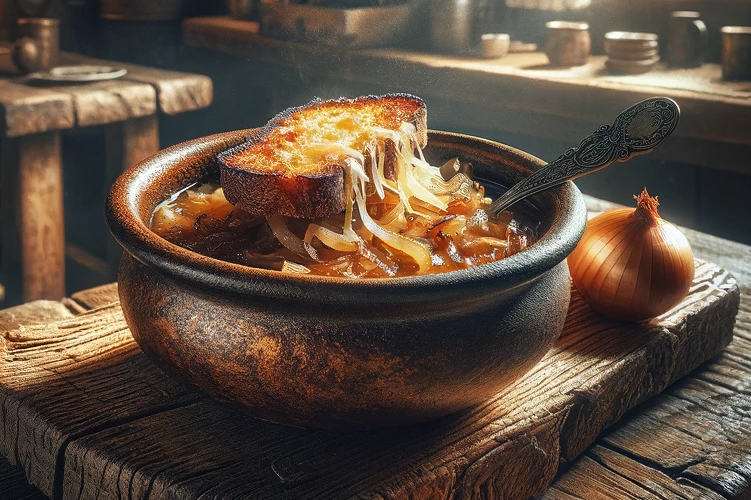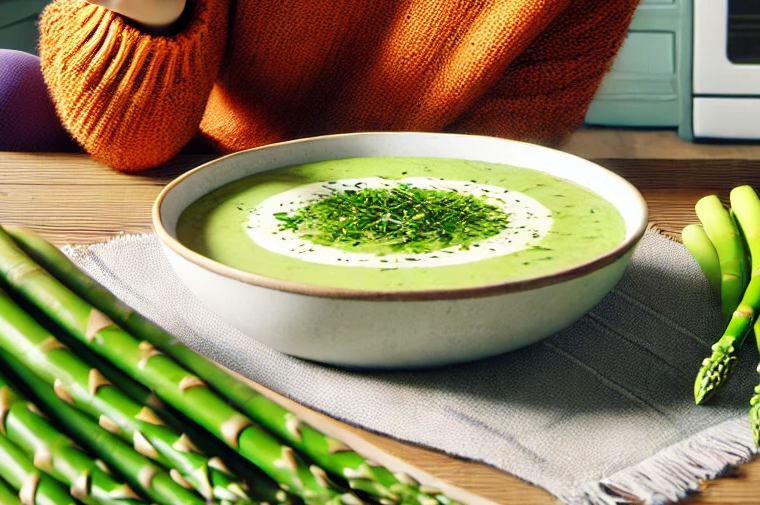Garlic soup

Garlic soup, a traditional dish in many cultures, prized for its rich flavor and health benefits in humans, raises questions in the world of dog nutrition. While garlic offers numerous benefits for humans, from boosting the immune system to preventing heart disease, its effect on dogs is controversial. In this article, we examine the composition of garlic soup, discuss its potential benefits and risks for dogs, and offer a comprehensive assessment of whether it should find a place in your four-legged friend's food bowl.
Garlic soup is based on garlic as the main ingredient, supplemented with broth, spices and often bread or egg. While this savory dish is prized in human cuisine for its warming and healing properties, garlic is known among veterinarians and dog owners for its potentially toxic effects on dogs. The specific effect of garlic depends on the amount, form (raw or cooked) and frequency of ingestion. These nuances are critical to evaluating the safety and effectiveness of garlic soup as part of your dog's diet.
What is garlic soup?
Garlic soup is a simple but flavorful dish that consists of a few basic ingredients: garlic, oil or butter, broth, and often bread or a beaten egg. In some cultures, it is used as a remedy for colds and flu. The soup can be prepared in a variety of ways, from clear broths to thicker, creamier versions.
Potential benefits for dogs
Immune system booster
Garlic contains allicin, a compound with antimicrobial properties that can boost the immune system. In very small amounts, garlic could theoretically have some health benefits for dogs, similar to humans.
Natural defense against parasites
There is evidence that garlic can help ward off certain types of internal and external parasites when given in very small, safe doses.
Risks and precautions
Toxic effects
Garlic is a member of the Allium family and can cause oxidative damage to red blood cells in dogs in large amounts or when fed regularly, which can cause anemia. Symptoms of garlic toxicity include lethargy, pale gums, weakness and in severe cases even death.
Digestive problems
Garlic can also cause gastrointestinal distress in dogs, including nausea, vomiting and diarrhea, especially when consumed in large quantities.
Difficulty with dosing
The safe amount of garlic can vary from dog to dog, depending on size, breed and general health. This makes it difficult to determine a "safe" dose, which is why many veterinarians generally advise against feeding garlic.
Although garlic soup can provide numerous health benefits for humans, it comes with significant risks for dogs. Given the potential toxicity and difficulty in determining a safe dose, it is advisable not to introduce garlic soup into your dog's diet. There are numerous other ways to support your dog's health through diet without resorting to controversial ingredients such as garlic.
If you notice any signs of hypersensitivity or poisoning in your dog, you should see your vet immediately. We are not a substitute for a vet, but we try to be as accurate as possible. Every dog reacts differently and we recommend you get a second opinion or consult your vet if in doubt.
Stay healthy and take good care of your four-legged friend!😊
Similar to Garlic soup
Onion soup is a traditional French dish consisting mainly of onions, which are slowly cooked until they caramelize and develop a deep, rich flavour. It is often infused with broth (meat or vegetable...
Tomatoes are generally not poisonous to dogs as long as they are ripe and have no green spots. Green tomatoes contain solanine, an alkaloid that can cause gastrointestinal problems, cardiac...
Asparagus soup is a creamy, often pureed dish made mainly from asparagus, stock and sometimes cream or milk. While asparagus is known as the main ingredient for its numerous health benefits for...
Cream of pumpkin soup is a smooth, creamy soup that essentially consists of pureed pumpkin, stock and often cream or milk. Spices such as nutmeg, cinnamon and ginger can be added to enhance the...



